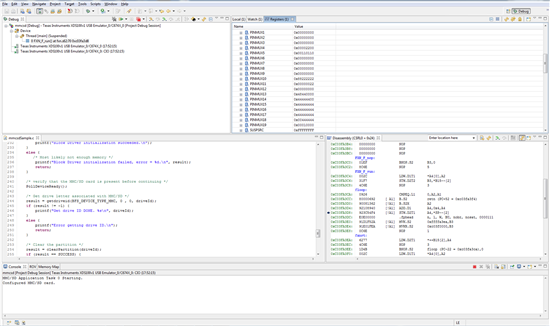Hi,
I have been trying to merge BSL based UPP code and RTFS based MMCSD code to collect sample and store data in SD card, respectively for a long time but no success. Both examples are working independently but when I merge them they don't work. I checked the PINMUX for both the project, none of them use PIXMUX5 but when I combine them I noticed PINMUX5 has used which might be a problem but I am not sure.
According to Pix Multiplex Utility, there are PIN overlaps when SPI1 and I2C0 are used together. If this is the problem, how this problem can be solved to merge two projects ? If PIXMUX is not the problem, what other problem it could be or how to solve that ?
I attach snapshot, you can see that the code doesn't execute further then I halted the processor. PINMUX configurations are also visible.
I appreciate your quick help.
Thanks.
BAS


